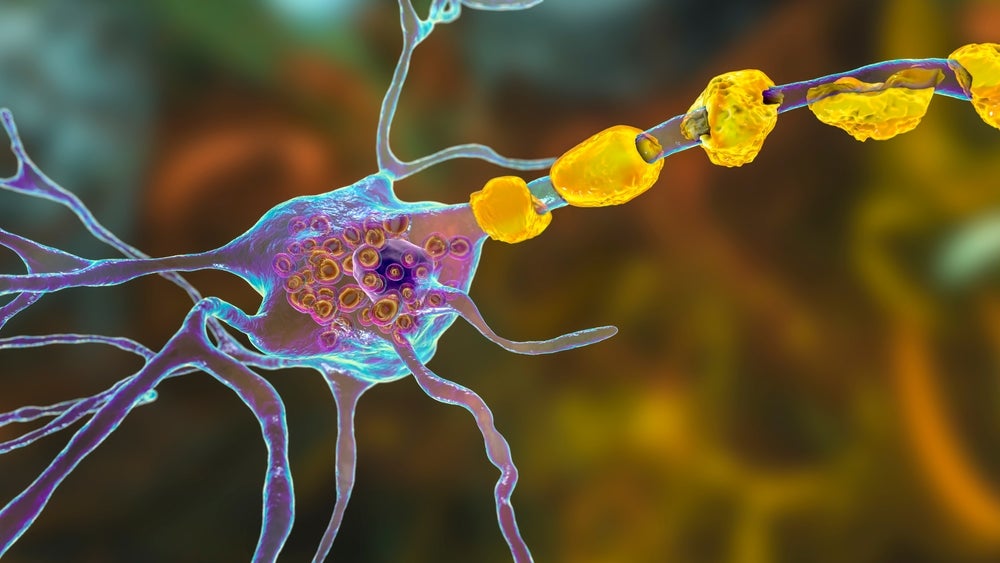Niemann-Pick disease type C (NPC) is a rare, progressive genetic disorder that is characterised by the accumulation of dysfunctional proteins and results in lysosomal function impairment.
Patients can experience diverse symptoms, from hepatosplenomegaly to neurological disorders, to respiratory failure.
In Germany and the UK, the only medicine approved for NPC is miglustat, marketed as either Zavesca or Yargesa or available as a generic.
In the US, miglustat is not approved for NPC, and it is used off-label by doctors as the only therapeutic option for this disease.
According to leading data and analytics company GlobalData’s recently published Niemann-Pick Type C: Opportunity Assessment and Forecast – Update report, the NPC market will reach sales of $220m in 2031 in the three major markets (US, Germany, and the UK).
This market growth will be driven by the introduction of pipeline therapies arimoclomol citrate ER, acetylleucine, Trappsol Cyclo, and nizubaglustat.

US Tariffs are shifting - will you react or anticipate?
Don’t let policy changes catch you off guard. Stay proactive with real-time data and expert analysis.
By GlobalDataWhile nizubaglustat, which is currently in Phase II clinical trials in the US, shares the same mechanism of action as miglustat, the other three pipeline therapies would be introducing new mechanisms of action into the NPC market.
Specifically, arimoclomol citrate ER, a heat-shock protein 70 amplifier, is expected to reach the US market by the end of this year, with a Prescription Drug User Fee Act action date set for 21 June 2024, and could therefore become the first approved drug for NPC in the US.
However, key opinion leaders (KOLs) interviewed by GlobalData did not seem too excited about the current NPC pipeline and remained sceptical that the drugs would prove to be efficacious enough to reach US Food and Drug Administration (FDA) and European Medicines Agency (EMA) approval.
When discussing arimoclomol citrate ER, a US-based KOL noted: “In the short term, within 52 weeks, there was a slowing of disease progression. I think, after that, starting at two years and beyond, the kind of benefit that you see is a little bit more muted.
“I think all of us in the medical field plus families are looking for at least a medication that stops the progression of the disease as opposed to slowing the progression of the disease. If you’re somebody who has NPC or a caregiver, you’ll take anything if it means that you get a little bit more time with your family.
“But the fact of the matter remains that NPC is a progressive disease, and it is neurodegenerative. And the current therapies do not reverse that trend.”
Many drugs have failed to obtain approval by both the FDA and EMA. Thus, the approval of effective disease-modifying medicines capable of reversing or stopping disease progression remains an important unmet need in the NPC space.
According to KOLs interviews, the general consensus seems to focus on using arimoclomol citrate ER as an add-on therapy to miglustat, instead of as a replacement, to help boost drug efficacy.
Zevra Pharmaceuticals, arimoclomol’s developer company, conducted a Phase II/III trial showing the synergistic effects of arimoclomol and miglustat when used in combination.
It would not be a surprise if the other late-stage pipeline drugs without drug-drug interactions are also combined with the standard-of-care miglustat when they reach the market.
For now, NPC patients must continue to wait for an effective therapy capable of reversing disease progression.
There are 28 drugs in active development for the rare disease, from discovery to preregistration stages.
Hopefully, one of them will revolutionise the treatment paradigm in the near future.





